Mouse Anti-TCR beta Antibody Product Attributes
Species: Mouse
Tested Applications: Flow Cytometry.
Application Notes: See Product Datasheet for Recommended Dilution Range. Requires Experimental Optimization
Clonality: Monoclonal Antibody
Anti-TCR beta Antibody Clone: H57-597
Clone H57-597 Host and Isotype: Armenian Hamster IgG
Buffer and Stabilizer: 10 mM NaH2PO4, 150 mM NaCl, 0.09% NaN3, 0.1% gelatin, pH7.2
Antibody Concentration: 0.5 mg/mL
Storage Conditions: 2-8C protected from light. Stable for 12 Months. Do Not Freeze.
TCR beta Previously Observed Antibody Staining Patterns
| TCR beta General Information | |
|---|---|
| Alternate Names | |
| T cell Receptor Beta, TCRB | |
| Curated Database and Bioinformatic Data | |
| Gene Symbol | Tcrb |
| Entrez Gene ID | 21577 |
| RefSeq Genomic Accession(s) | NG_006980, NC_000072 |
| Cosmic ID(s) | Tcrb |
| General Description of TCR beta. | |
| The H57-597 antibody is specific for the beta chain of the mouse T cell Receptor (TCR). This cell surface protein combines with a second protein chain (alpha chain) to form the alpha-beta TCR that is expressed by NK1.1+ thymocytes, NKT cells, and the majority of peripheral T cells. A small number of T cells may express an alternative heteromer of gamma/delta protein chains, known as the g/d TCR. These receptors participate in a complex with CD3, and with the co-receptors CD4 or CD8, to recognize and respond to antigens bound to MHC molecules on antigen-presenting cells. Such interactions promote T cell receptor signaling (T cell activation) and can result in a number of cellular responses including proliferation, differentiation, production of cytokines or activation-induced cell death.The H57-597 antibody is used as a phenotypic marker for T cells expressing the alpha-beta TCR. It is also widely used to cross-link surface TCR and thereby mimic TCR-mediated cell activation or induction of apoptosis. The antibody does not cross-react with cells expressing the g/d TCR. | |
Selected References
Berent-Maoz B, Montecino-Rodriguez E, Signer RAJ, and Dorshkind K. 2012. Blood. 199:5715-5721. (Flow cytometry)Wang D, Qin H, Du W, Shen Y-W, Lee W-H, Riggs AD, and Liu C-P. 2012. Proc. Natl. Acad. Sci. 109:9493-9498. (in vitro induction of apoptosis)OBrian RL, Taylor MA, Hartley J, Nuhsbaum T, Dugan S, Lahmers K, Aydintug MK, Wands JM, Roark CL, and Born WK. 2009. Invest. Ophthalmol. Vis. Sci. 50: 3266-3274. (Immunofluorescence microscopy – OCT embedded frozen tissue)Matei IR, Gladdy RA, Nutter LMJ, Canty A, Guidos CJ, and Danska JS. 2007. Blood. 109:1887-1896. (Immunoprecipitation)Harada N, Shimada M, Okano S, Suehiro T, Soejima Y, Tomita Y, and Maehara Y. 2004. J. Immunol. 173:6635-6644. (in vivo T cell depletion)Kubo RT, Born W, Kappler JW, Marrack P, and Pigeon M. 1989. J. Immunol. 142: 2736-2742. (Origination of clone, Immunoprecipitation, in vitro activation)
Limitations and Warranty
enQuire Bio’s Mouse Anti-TCR beta Monoclonal is available for Research Use Only. This antibody is guaranteed to work for a period of two years when properly stored.

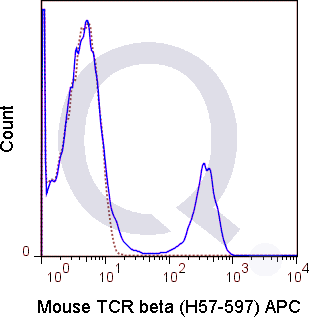

![Anti-TCR beta Antibody [H57-597] - Image 3](https://cdn-enquirebio.pressidium.com/wp-content/uploads/2017/10/enQuire-Bio-QAB79-F-100ug-anti-TCR-beta-antibody-10.png)
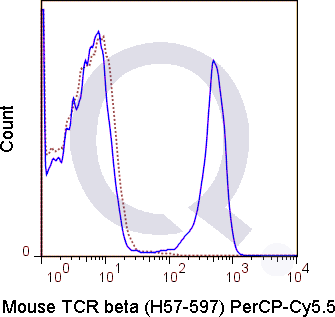
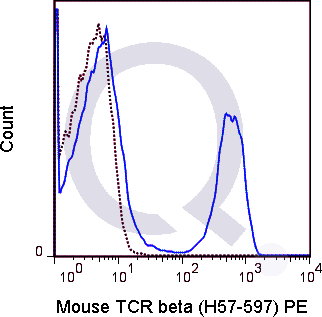
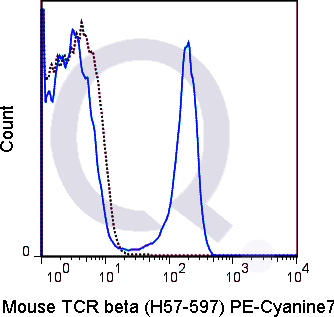

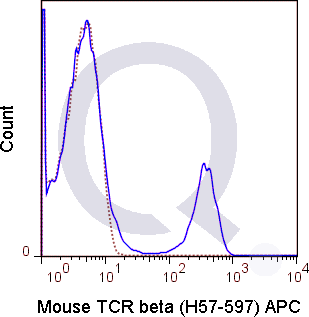
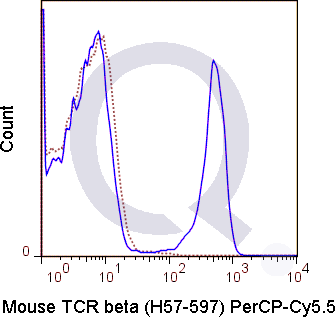
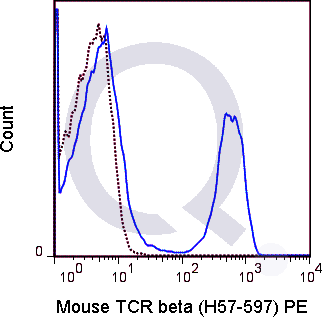
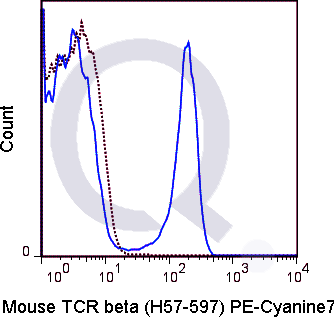
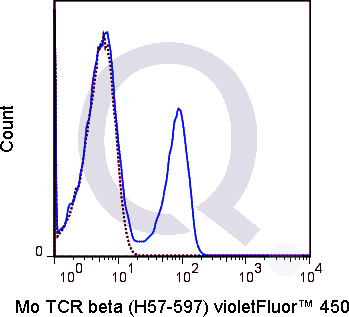

There are no reviews yet.